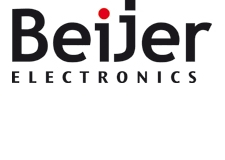Preventing Damage to Inductive Proximity Sensors
Every factory in the UK uses inductive proximity sensors.

As the proximity sensor does not require any physical contact it is particular useful for applications where access presents challenges or where dirt is prevalent.
Common uses of proximity inductive sensors include metal detectors, automated industrial processes, car washes etc or any other automation application that requires detection of a metallic object without touching them.
The Inductive Proximity Sensor Application Problem
Inductive sensors have to be set very close to the metal target that they are detecting; the industry norms of an iron target are as below:
- M8 1.5mm
- M12 2mm
- M18 5mm
- M30 8mm
The less ferrous the target object, the smaller the sensing range becomes (just 1/3 of the stated range is achieved for aluminium)
As a result they are prone to damage by contact from the target object. Although the sensors themselves are cheap to replace, the downtime caused may run into thousands of pounds.
Inductive Proximity Sensor Solution
The customer used many inductive proximity sensors in a very harsh environment of brick making equipment. Sensors are damaged by water, abrasive brick dust and mechanical damage from collision with bricks.
More Control was able to supply a new type of inductive sensor from Contrinex. The sensor is made from one piece of stainless steel which gives it an IP68 rating against water and dust. (Highest rating)
The 700 series is made from one piece of stainless steel allowing amazing protection to the sensing face making it far more resistant to mechanical damage than the traditional plastic faced type. The sensing face is so good that an M30 sensor mounted in a mallet can be used to hammer nails into wood!
The sensor range also has approximately four times the sensing range of a standard inductive proximity sensor, allowing the sensor to be further from the target and less likely to strike the target object. The inductive proximity sensor also has the same extended range on any metal (including aluminium).
Since fitting this new type of inductive proximity sensor, not one unit has been replaced.
The overall result has been an improved productivity due to reduction in machine downtime, and a reduction in maintenance of expenditure on spare sensors.
Current big name users of the 700 series include:
Audi, Daimler Benz, Toyota, Ford, General Motors, Unigate, Dairy Crest, Glaxo, Smith Kline, APV
If you have an inductive proximity sensor application that you wish to have designed or developed, feel free to contact More Control on: 0345 00 00 400 and one of our technical engineers can provide the ideal sensor solution for you.































